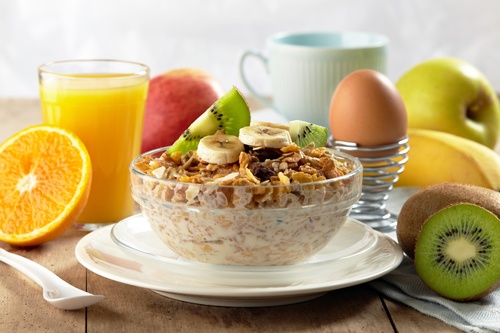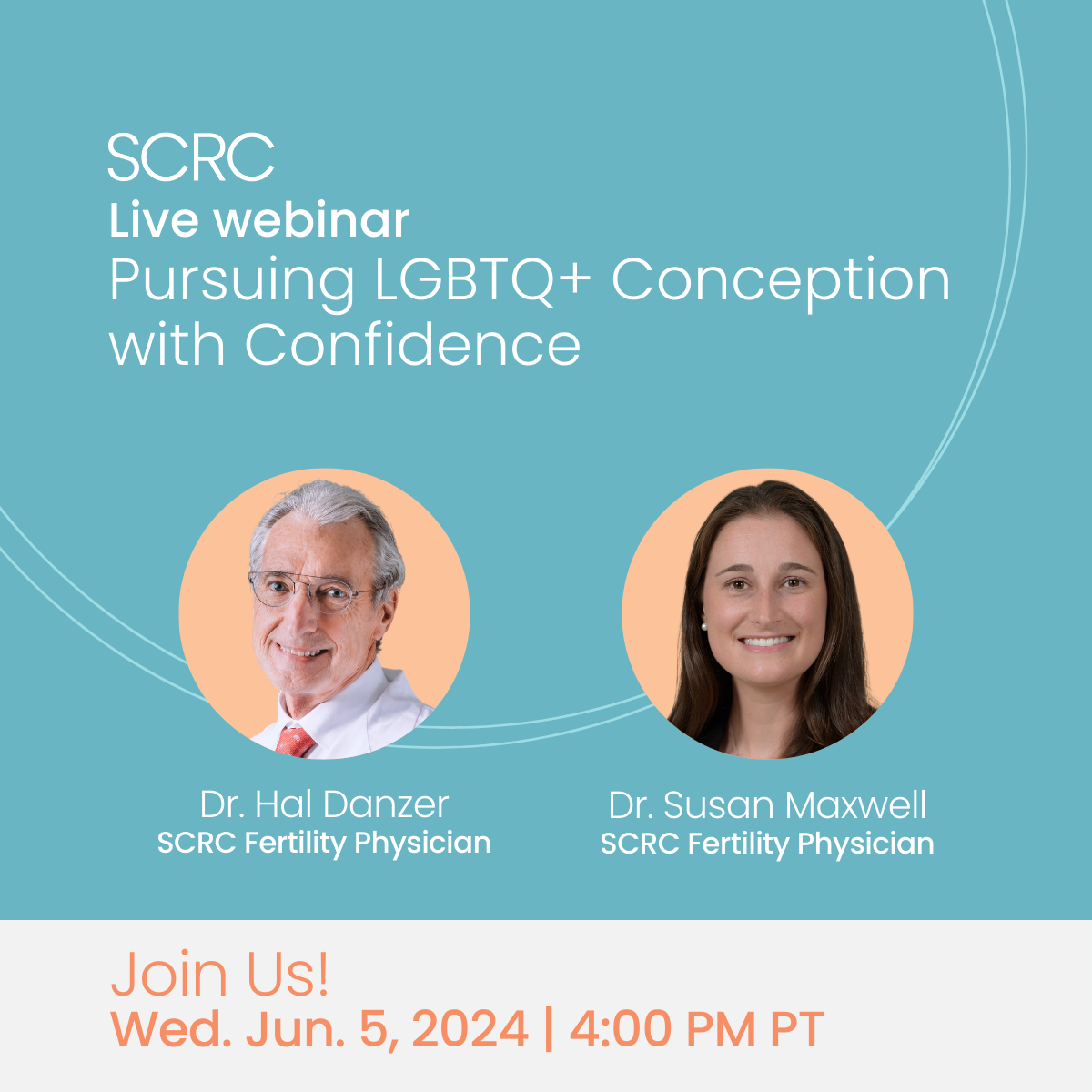

Can what you eat affect your fertility? There is no such thing as a medically proven “fertility diet,” but you can help to lay the groundwork for a healthy pregnancy by paying close attention to your nutrition. Studies have shown that physical fitness can make a difference in IVF outcomes. Both obesity and a too-low body weight can have adverse effects on your fertility and may reduce the success of IVF cycles. While there are many circumstances which can contribute to body weight and health, a good diet is an excellent first step. If you are already at a healthy weight, paying attention to your diet can ensure that you’re getting all of the vital nutrients you need to carry a pregnancy. It is also an exceptional way to offer yourself some care and nurturing as you go through a process which can be emotionally and physically demanding.We have put together this guide to IVF nutrition as a set of general guidelines for anyone contemplating fertility treatment, but they are not meant to replace a professional opinion. If you are considering IVF, we highly recommend that you make a nutritional counseling appointment with a qualified nutritionist or dietitian.
How far in advance should I start preparing for IVF?
It’s never too early to develop healthy eating habits, of course, but two to three months before each cycle of IVF is enough to give yourself a good head start. This is a good time to make that nutritionist appointment, and you will also want to make an appointment with your doctor to check your thyroid levels and do a full blood work panel. Dr. Fiona McCulloch, ND, a naturopath who specializes in fertility and preparing patients for IVF, recommends that you ask for the following blood tests:
- Antinuclear antibody
- Prolactin
- Ferritin
- INR
- Prolactin
- FSH
- LH
- DHEA-S
- Testosterone
- Antimullerian hormone
You can also ask to have a nutritional screening, where your blood is tested for your existing levels vitamins and minerals. In the rare case that you are suffering from an actual deficiency, you’ll be able to begin treating it in plenty of time for your IVF cycle.
Putting together a healthy, balanced diet:
No one diet or eating plan is best, so you don’t need to start creating a long list of rules around food. Many popular diets call for restrictions on carbs or fat: if you currently follow a restrictive diet such as a Paleo, grain-free or a very low fat diet, you should discuss this directly with your doctor.
In its simplest form, healthy eating just means getting an appropriate level of macronutrients (or “macros”) every day while consuming a healthy amount of calories. Your macros are protein, carbs, and fats, and all are necessary for optimum health, though the proportions of each may vary. There are dozens of apps which can help you easily and quickly calculate and track these macros as you go. Tracking what you are eating is one of the most important things you can do for your nutrition. It allows you to see what’s working and what’s not so that you can make healthy changes as you go.
So how do you determine what your body needs every day? Start with protein. Your nutritionist can help you tailor an exact plan, but the CDC’s average requirement of protein for women ages 19 to 70 is 46 grams per day. This is a good jumping off point. In general, you should aim for 25% of your daily calorie intake to be protein.
Being creative about your protein sources is one way to make sure you are getting a broad spectrum of amino acids and other essential micronutrients. Lean meats, eggs, and legumes such as beans and lentils are all great choices. If you are a vegetarian, the addition of tempeh or Quorn are a great protein boosters, though you may want to cut down on soy-based proteins (more on that later).
As for the other 75% of your calories, it is up to you. Large amounts of vegetables, some fruit, and high quality, whole grains (especially in sourdough breads) are all wonderful sources of nutrition. Overall, you can’t go wrong with fresh, whole foods. Do not be afraid of healthy fats: they are critical to good nutrition, especially when it comes to fertility. Unsaturated fats and fatty acids are all important building blocks, and also play an important role in helping your body absorb and use the nutrients in all of your food: look for them in avocados, nuts, seeds, and unrefined oils. Buy organic or local wherever possible, in order to avoid pesticides and other chemicals. The importance of staying hydrated can’t be overstated. It will aid digestion and absorption of nutrients, promote optimal cell health, and so much more.
Some preliminary studies have shown a possibility that a high protein diet like this may boost pregnancy rates in women undergoing IVF, especially when carbohydrates make up less than 40% of intake, but this has not been conclusively proven.
What to avoid in preparation for IVF:
While there are few hard-and-fast rules here, obviously no cigarettes or drugs should be consumed while you are preparing for or undergoing IVF treatment. After that, it’s a question of moderation, and understanding what you are “getting” from everything you ingest.
- Processed foods, foods high in sugar or artificial sweeteners, and hydrogenated foods are high in calories but very low in nutrition, making them “bad value.”
- You may want to consider reduce or cease consumption of caffeine, alcohol, and chocolate. If you eat a lot of soy, you should cut back: it may affect hormone levels in the body, which is unhelpful when you are undergoing fertility treatment.
- Another thing to look out for is fish known to be contaminated with high levels of heavy metals, such as mercury. The Environmental Defense Fund has a very helpful resource which lists different types of seafood and their contamination levels.
Vitamins and supplements:
You should talk to your fertility specialist before making any major changes to your diet and especially before starting on any course of vitamins or herbal supplements. Many women take a prenatal vitamin during this time. There are some supplements which are especially recommended for women who want to get pregnant:
- Omega 3 fish oil
- Coenzyme q 10
- Minerals: Zinc, Magnesium, Selenium, Iron
- Amino acids such as L-Carnitine and L-arginine
- Vitamins: A, B6, B12, C, E
- Folic acid
Be careful of contaminants when selecting your fish oil supplements: make sure that they have been tested, and take only the recommended amount.
Things to watch out for:
Recommendations from well-meaning relatives, friends, or Internet sources that aren’t medically reliable can derail you from your nutritional goals. Everybody has an opinion when it comes to food, and many people are not shy about sharing it. Use your nutritionist and doctor for support, and don’t be afraid to ask for expert advice if you are feeling unsure.
Fad diets, detoxes, juice cleanses, “tea-toxes,” or obsessive eating habits can and do take their toll on all bodies, but if you are planning for IVF, their effects can be disastrous. This is a time to nurture and nourish your body so that it can nurture, and nourish a new life. Severe deprivation should have no place in your diet. If you have struggled with disordered eating in the past, getting professional help at this very sensitive time is one of the best things that you can do for yourself, your fertility, and any future child.
When preparing for IVF treatment most patients are also anxious to do everything in their power to increase their chances of a successful IVF cycle. As fertility specialists, we control as many variables as possible in the clinic and the lab, but some factors, such as a patient’s overall level of health and fitness, are beyond our direct reach: it is something that only you can do for yourself.
A vibrant, varied diet rich in nutrients can help to strengthen your body’s systems and create a healthy foundation for IVF. It’s less about sticking to a strict “fertility diet” and more about developing a healthy lifestyle now, so that you are fit, healthy, and ready for all the joys and challenges your future baby will bring.
{{cta(‘a65b5d46-984b-424f-8ee8-3107ded8598e’)}}




